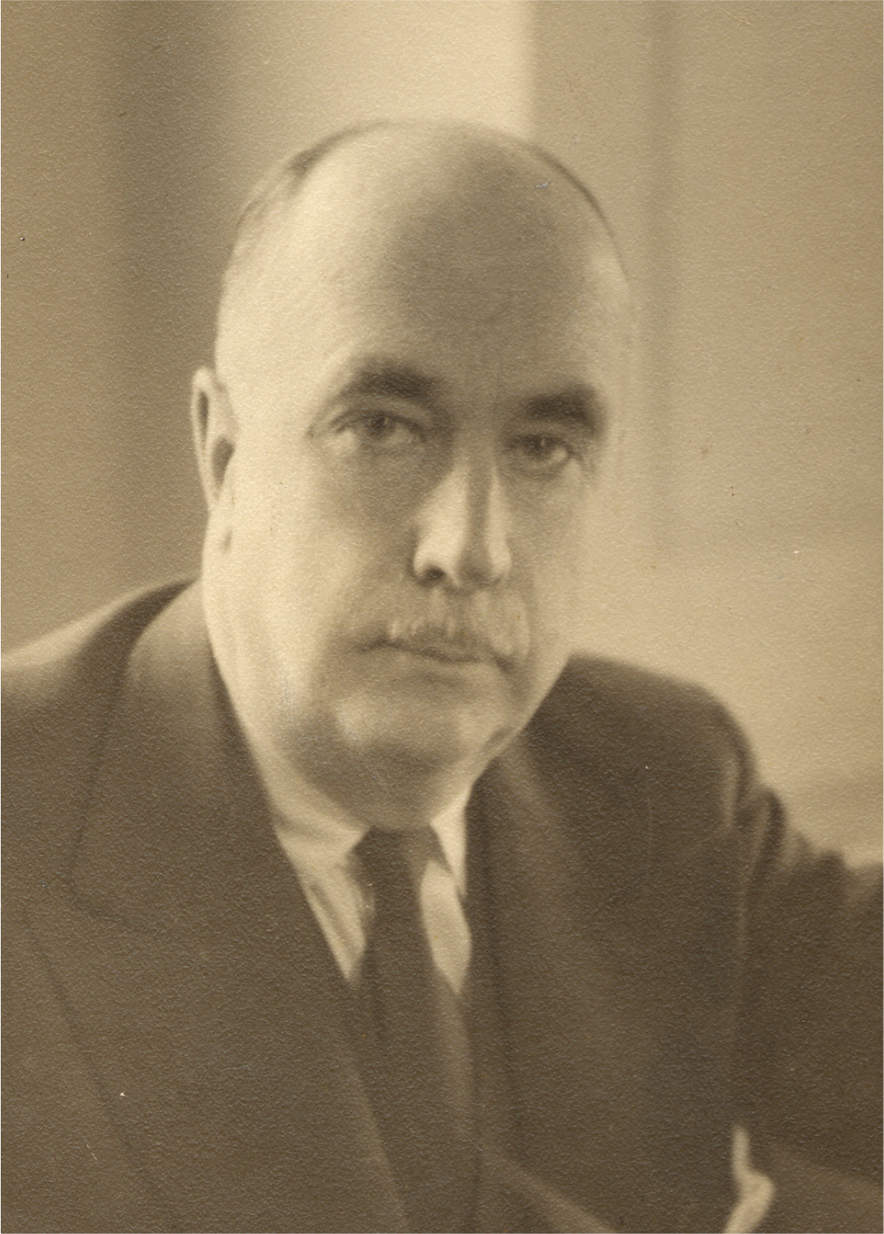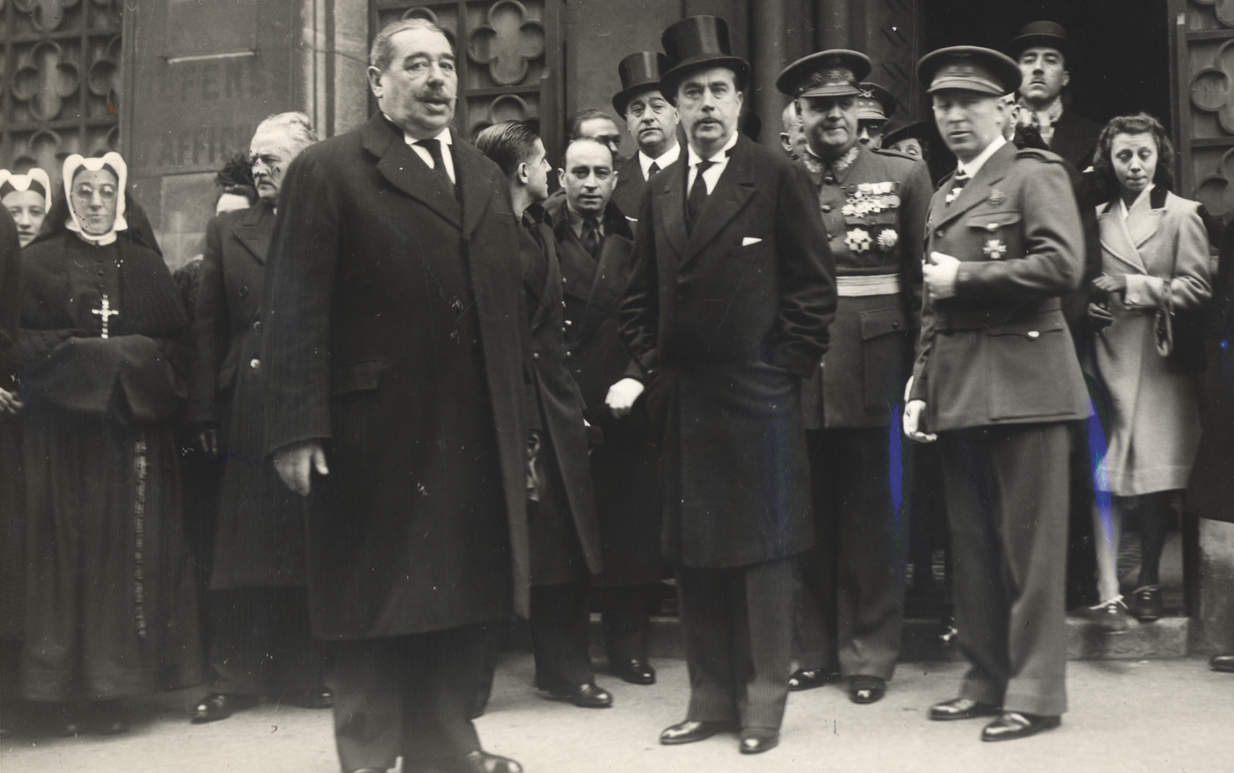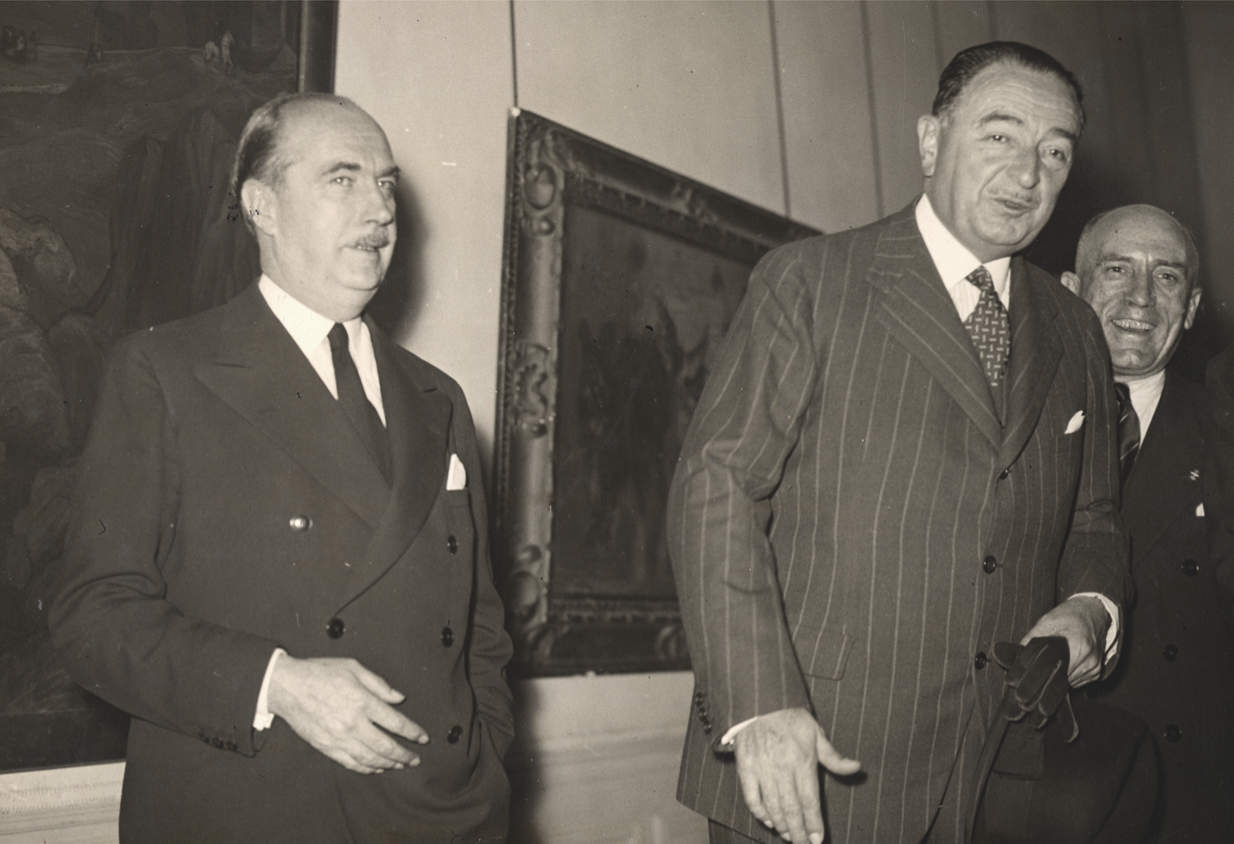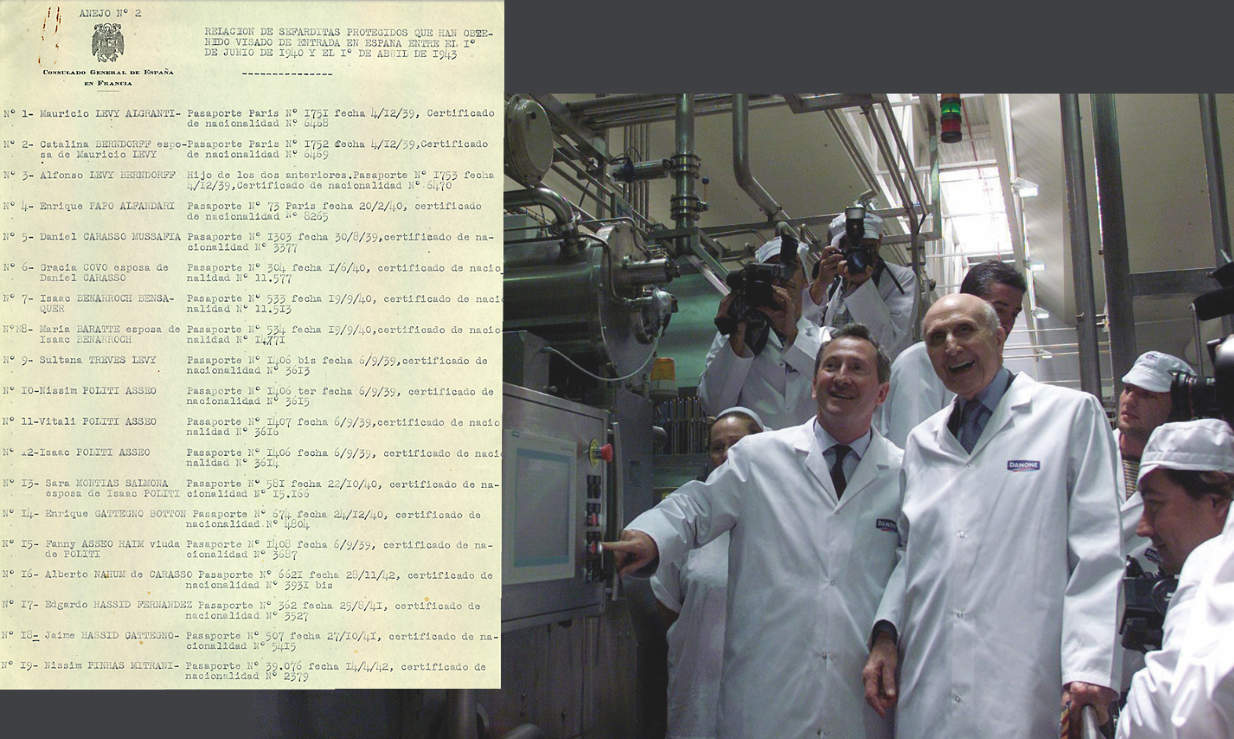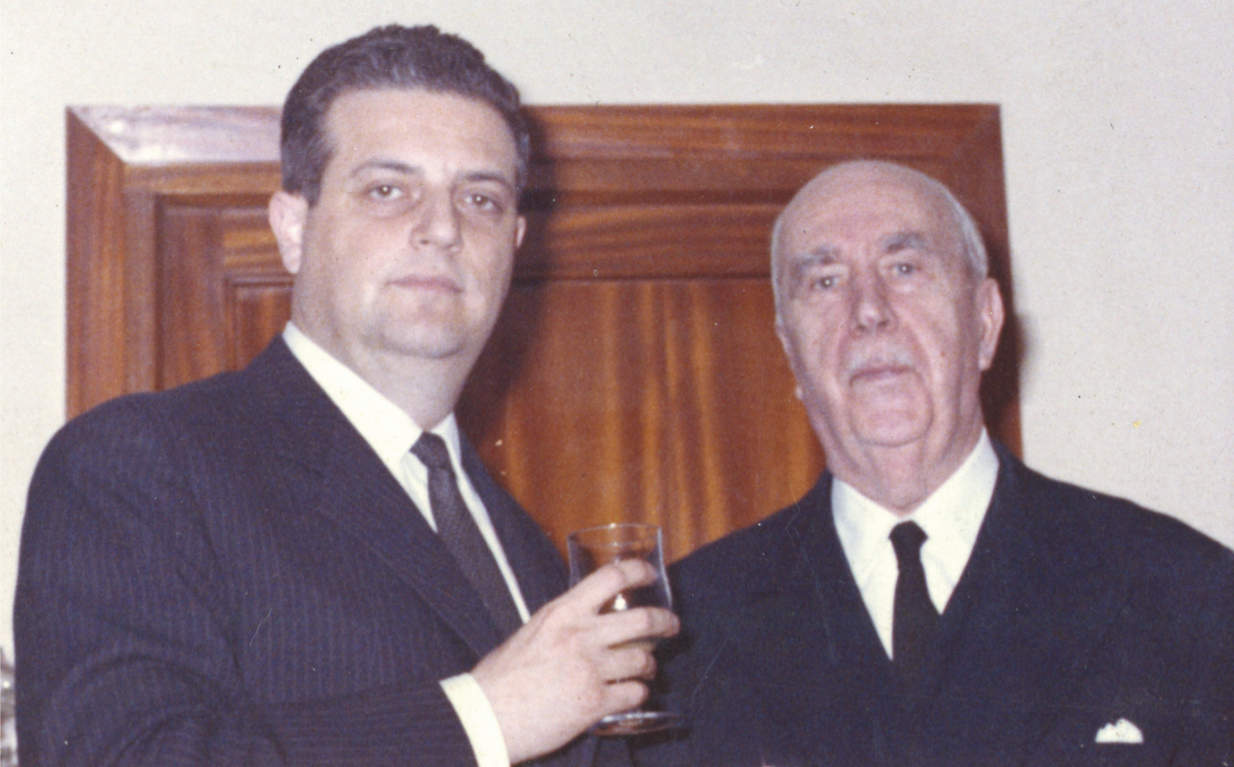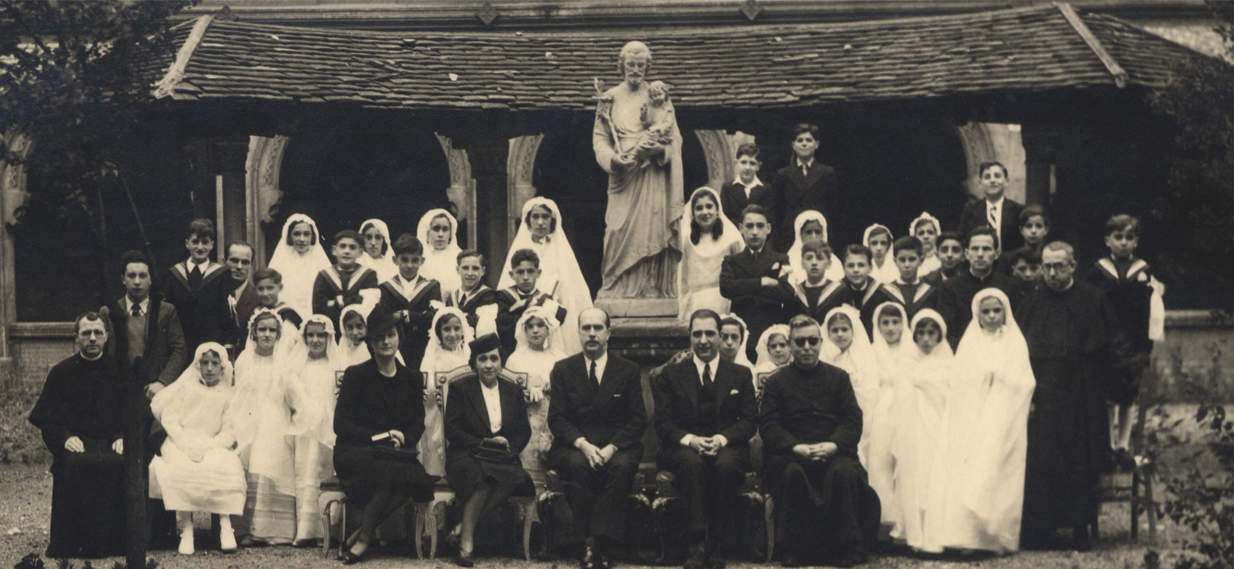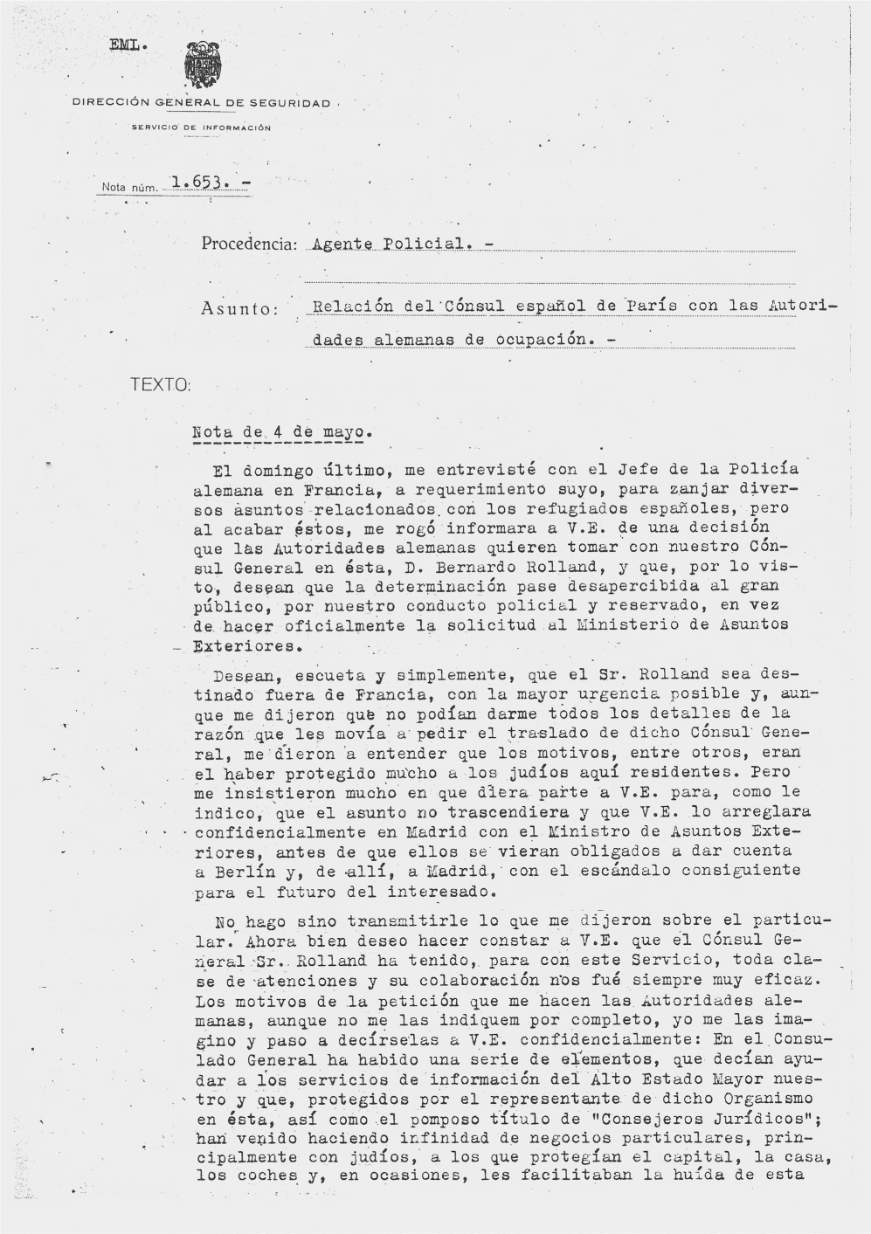CONSUL GENERAL (PARIS, 1939-1943)

BRENANDO ROLLAND Y DE MIOTA
Individual repatriations
Bernardo Rolland y de Miota (1890-1976) was born to a typical bourgeois family during the Spanish Restoration: a pious, serious, patriotic family, one that was loyal to the monarchy. His father, a prestigious politician and financier, a member of Parliament and of the Senate for the Conservative Party, was Deputy Speaker of the Senate during the reign of King Alfonso XIII.
Other members of Rolland's family were diplomats or in the military. He went to school in England, where he became somewhat of an Anglophile. By the time he arrived in Paris as Consul General in March 1939, he was already an experienced diplomat with 27 years' service.
In October 1940 Rolland opposed compliance with the German military administration's anti-Semitic ordinances for Spanish citizens of Jewish origin. Without instructions from his Ministry, he told the French and Nazi authorities that, as there was no legislation in Spain establishing racial differences, it was inadmissible to apply such ordinances to his fellow countrymen, even if they were Jews. Moreover, he noted that such ordinances were contrary to the stipulations of the 1862 Consular Convention between Spain and France in place at the time. At his own initiative, Rolland issued to his Jewish fellow nationals a certificate of protection, signed by himself, thus enabling them to be partially excluded from the racial legislation in the Statut des Nils. Rolland's Foreign Minister, Serrano Suñer, would disapprove of this action.
One of the initiatives carried out by Rolland with the greatest discretion was the individual repatriation of a considerable number of Jews through personal authorizations. Indeed, between 1 June 1940 and 1 April 1943, he granted entry visas into Spain to 20 Sephardim and to a further 27 former protectees, even though they were not included on the Consulate's register of citizens. By February 1943, according to a list of members of Spain's Official Chamber of Commerce in Paris, 126 Spanish Jews had already been repatriated to national territory. At times, this silent action was carried out through a surprising channel: the trains that departed weekly from Paris carrying Spanish citizens who wished to return to their homeland. The Consul took advantage of these trains, introducing a few Sephardim into the cars reserved for the Falange Party.
Together with four Spanish Jews, Rolland created an office serving as a liaison between the Consulate and the Spanish Sephardic community in Paris; aiming, inter alia, to grant nationality certificates and passports also to protectees, thus contravening his superiors' stringent rules.
In order to prevent the confiscation of the assets of his Jewish fellow nationals, with great zeal and through personal contacts with the occupying German authorities, Rolland reached an agreement for privileged treatment in September 1941. This involved the following exceptions for Spanish Jews: Unblocking their accounts; allowing them to use and keep money resulting from the forced liquidation of their assets; appointing exclusively Spanish administrators for their property, and centralizing its management at the Bank of Spain in Paris.
Rolland's insistent intervention before the French and German authorities made it possible for the 14 Spanish Jews arrested at the round- up of 20 August 1941 to be released from the Drancy camp on 3 April 1942.
Less well-known is the collaboration that Rolland established with the Spanish Catholic Mission in Paris in order to obtain false baptism and marriage certificates so that certain Spanish Jews could appear to be Catholic.
In May and November 1942 the occupying German authorities expressed their wish that Rolland be removed from his post in France as soon as possible "for having greatly protected Jews in Paris". Ambassador Lequerica conveyed the Nazi's dissatisfaction to Madrid, but the Foreign Ministry was reluctant to order Rolland's return, despite a report by the Falange Party in France accusing him of being "a conspirator, a monarchist and an anti-Falangist". On 15 April 1943 he left Paris, having been appointed head of personnel for the Spanish diplomatic service.
As regards his efforts to protect the Sephardim, Rolland's behaviour was influenced by his wife, María Luisa, a very pious woman, with a profound sense of duty and of Christian charity. In Paris he was also able to count, at all times, on the help of his friend, the Consulate's Chancellor Rafael García Mouton.
After holding important posts in the Foreign Ministry, Rolland retired in 1960 and died in Madrid at the age of 86.

 Loading
Loading

